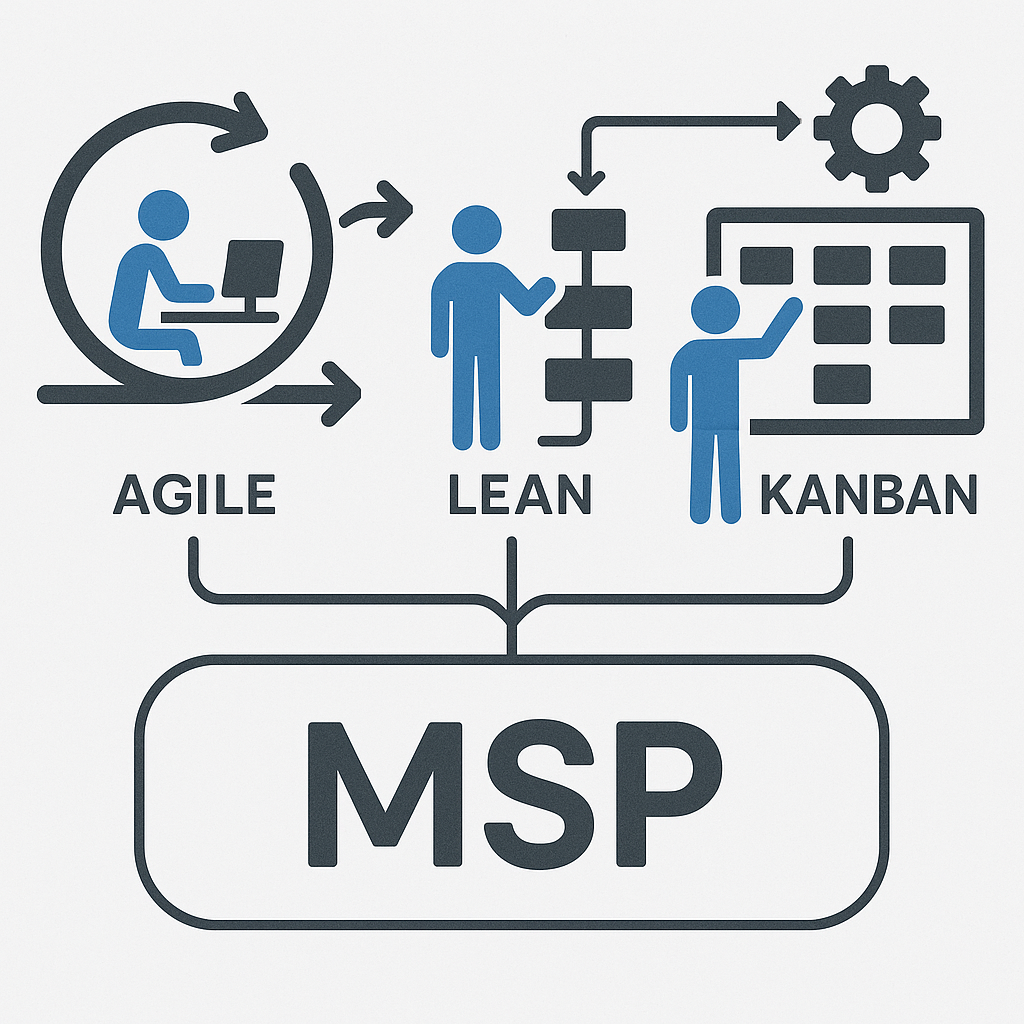10 Ways Lean, Agile, and Kanban Drive Profitability for MSPs

Most MSP leaders know the daily grind: projects that drag on, backlogs that never shrink, and technicians stretched too thin. What’s less obvious is that these challenges aren’t just operational headaches — they’re profit killers.
The good news: proven practices from Lean, Agile, and Kanban offer a way out. These aren’t buzzwords. They’re principles tested for decades in manufacturing, software, and service businesses — and when applied in an MSP, they directly translate to profitability.
Here’s how.
1. Faster Time-to-Value for Clients
Lean emphasizes finishing work before starting new work. Clients see results sooner, which shortens the time between signing a deal and billing. Faster delivery means improved cash flow.
2. Reduced Multitasking and Context Switching
Kanban encourages teams to limit work in progress. Every switch between tasks costs productivity — often 20% or more. Reducing context switching turns wasted time into billable hours.
3. Lower Rework and Error Costs
Agile thrives on short feedback loops and visible progress. That reduces mistakes and missed requirements — unbillable work that eats directly into margins.
4. Smarter Capacity Planning
Knowing how much work your team can handle prevents overcommitting and under-delivering. Kanban makes capacity visible, enabling better hiring decisions and more predictable project schedules.
5. More Predictable Revenue
Metrics like throughput and cycle time allow MSPs to forecast with confidence. Predictability builds client trust, leading to fewer escalations, steadier renewals, and more upsell opportunities.
6. Better Use of Senior Engineers
Lean exposes bottlenecks. Senior engineers are often the most valuable — and the most overloaded. Protecting their time ensures they focus on high-margin projects instead of low-value tasks.
7. Higher Client Satisfaction → More Expansion Revenue
Consistent, transparent, and on-time delivery reduces churn and drives referrals. Clients who trust your delivery are far more likely to buy additional services.
8. Reduced Administrative Overhead
Lean workflows cut waste. Managers spend less time chasing updates, building reports, or micromanaging. That frees hours for client-facing work and revenue generation.
9. Sustainable Pace and Lower Turnover Costs
Agile emphasizes sustainable workloads. Reducing chaos and burnout lowers turnover — a major savings, since replacing an engineer can cost $20,000–$30,000 or more.
10. Continuous Improvement That Compounds
Lean is about ongoing improvements that add up over time. Each cycle removes more waste, making the business increasingly scalable and profitable.
The Bottom Line
.png?width=2000&name=image%20(4).png)
Lean, Agile, and Kanban aren’t abstract theories. They’re practical, measurable ways to make service businesses more profitable.
If you want to see how these principles translate into real-world savings and revenue gains for MSPs, check out our previous post: 10 Real Ways MSPs Can Save or Make Money Using TopLeft.
The common thread: when work is visible, focused, and flowing, profitability follows.








